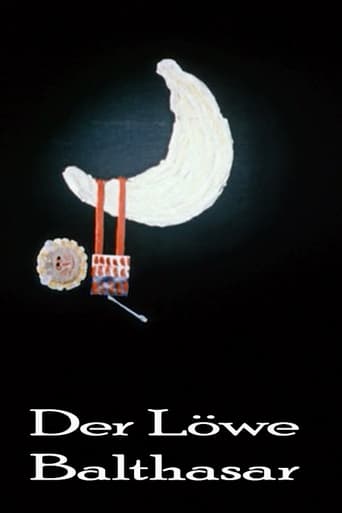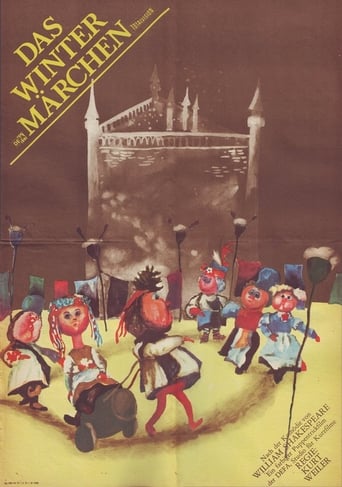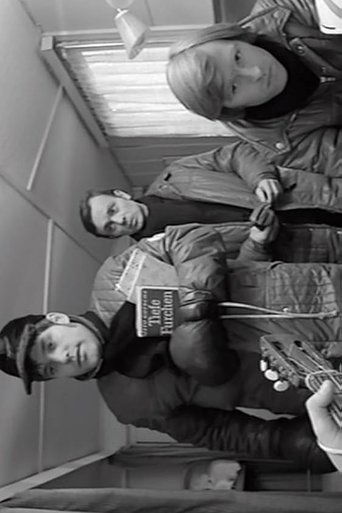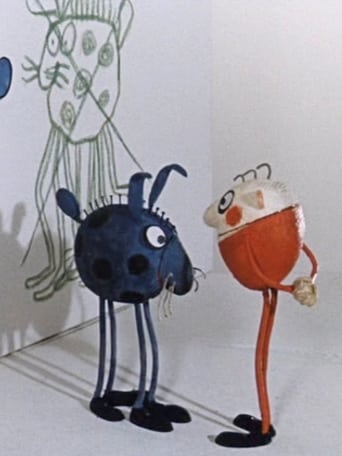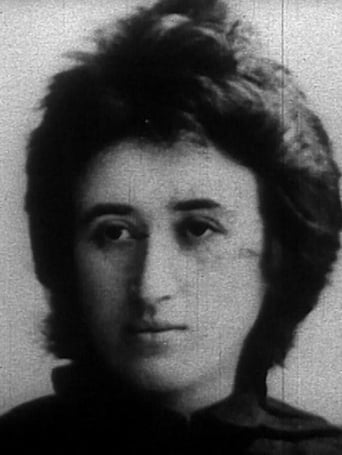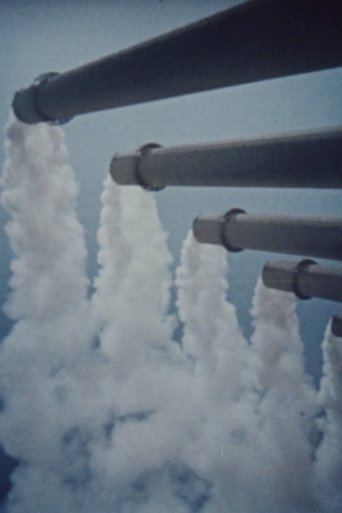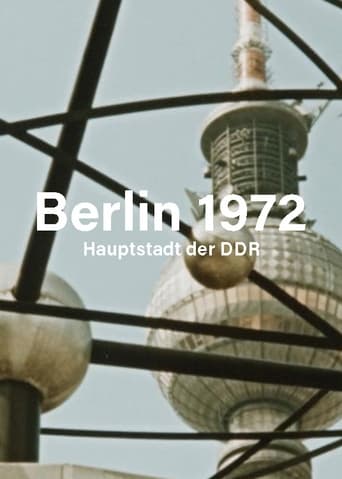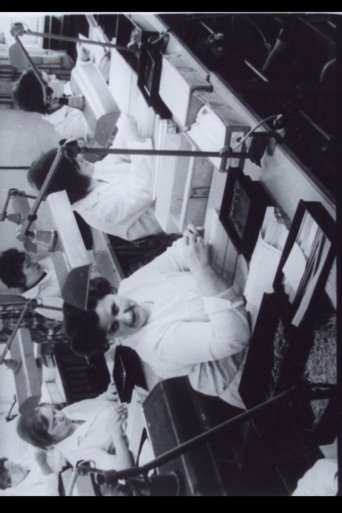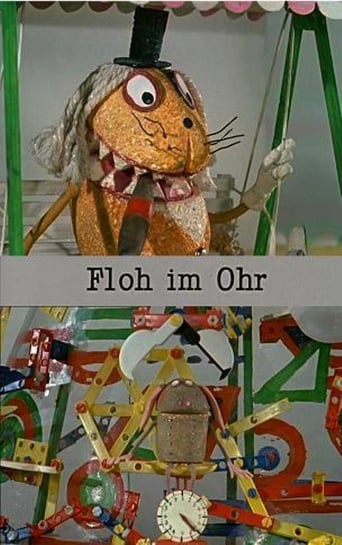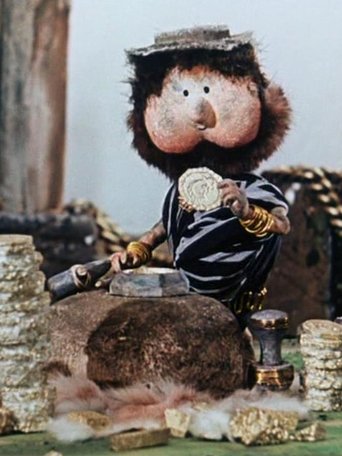DEFA-Studio für Kurzfilme
Der Löwe Balthasar 1971
Empty boxes and packaging, a little paint, brushes and a lot of imagination - the result is a whole zoo with Balthazar the Lion. He only has one fault - his mouth is a little too big and now he eats everything that gets in his way. When he doesn't even stop at the moon, the other animals are forced to intervene and the painter gives Balthazar a smaller mouth.
Berlin - Hauptstadt der DDR I 1970
"I'm walking through my city...", sings a cheerful pop singer. She fervently praises the new metropolis of East Berlin. As an emphatically lively, often anthemically condensed revue, the film tells of the "growth and development of our new capital". Accompanied by cheerful music, the camera indulges in high-altitude views, shows squares whose fountains, benches and green spaces are designed to make you forget that you are in a big city, as well as visitors from all over the world in top hotels. An emphatically cheerful, yet meaningful insight into the brave new GDR world.
The Winter's Tale 1973
Leontes, king of Sicily, tries to convince his friend Polyxenes, king of Bohemia, to stay longer as his guest. But only Hermione, Leontes' wife, can talk Polyxenes into not leaving. Leontes gets suspicious. Is his wife having an affair with his friend? Leontes tries to find out about it...
Ein Ehrenmann geht… 1971
The film follows the career of Karl-Theodor Molinari from major in the Wehrmacht to general in the Bundeswehr. Authentic archive material and eyewitness testimonies are used to gather evidence of Molinari's guilt in the deaths of over a hundred French resistance fighters.
Der Apfel 1970
Everything started with a forbidden apple. The independent and intellectual man is responsible for continuous progress. But when profit-greedy people use his new inventions to exploit others a revolution starts because people want to create their Garden of Eden here and now.
Rosa Luxemburg 1971
The film outlines the life of this revolutionary leader of the German and international working-class movement.
We and Our Environment 1971
On the occasion of the GDR Landeskulturgesetz (Law on the Conservation and Protection of the Environment), passed in 1970, the speaker explains the various aspects of environmental protection through vivid, visually pointed examples. The film repeatedly refers to the fundamental contradiction between exploitation and preservation of nature in a developed industrial state but is unable to resolve it.
Berlin 1972 - Hauptstadt der DDR 1973
"I'm walking through my city...", sings a cheerful pop singer. She fervently praises the new metropolis of East Berlin. As an emphatically lively, often anthemically condensed revue, the film tells of the "growth and development of our new capital". Accompanied by cheerful music, the camera indulges in high-altitude views, showing squares whose fountains, benches and green spaces are designed to make you forget that you are in a big city, as well as visitors from all over the world in top hotels. An emphatically cheerful, yet meaningful insight into the brave new GDR world.
Das Geschenk – eine beinliche Geschichte 1974
How young people were manipulated to join the war during the Imperial Era.
Women of Our Time 1969
The women’s committees in the GDR factories promote the technical and ideological-political qualification of female staff members. However, the film identifies deficits in the women’s private environment, since the men by their side often support their professional development only to a limited extent and the women’s multiple responsibilities persist despite state support.
Nachtarbeiter 1974
Documentary reports on night workers in the German Democratic Republic in the fall of 1973. The camera provides insights into the difficult and often bleak work during the night hours. Examples of work in a large bakery, in a police call center, in a railroad signal box, in a steel and coking plant and finally in a power station show that the city must continue to live at night. Apart from two short commentaries at the beginning and end of the documentary and a few musical sounds, the atmosphere of the workplace captured in each case is only rarely underpinned with speech.
A Flea in the Ear 1970
The lion, wolf and fox use modern technologies for producing their food instead of traditional hunting methods. They set up a farm where they fatten up animals and produce prepared meals with the latest technology. One day, the oppressed animals, tired of what is going on, set up their own state and stand up against their dangerous predators.
Monika 1975
A documentary about Monika Töpper, a young woman in Gebersdorf, Thuringia, who has cared for her two brothers and elderly father since her mother’s death in 1970. Trained as a porcelain maker instead of the nanny she once dreamed of becoming, she channels her creative spirit into her craft yet yearns for a “big” life beyond her village. Noticing her leadership, the factory’s Party secretary recruits her as an FDJ candidate; she wins a seat on the district Health and Social Welfare Commission. There, Monika champions the needs of a local nursing home, fulfilling one of the great tasks she once only imagined. Torn between duty to her family, her budding political role, and her boyfriend’s ambitions, she realizes that to pursue true fulfillment she must eventually leave Gebersdorf—yet for now remains its devoted daughter.
Nörgel & Söhne - Ich, Nörgel, Teil 3 1970
Nörgel is on his way home from the Leipzig market. He is exhausted from the trade business using animals as an exchange. There should be an easier way than using animals... What about small and large coins made of gold? Part three of the animation trilogy Nörgel & Sons.
Dialogue with Lenin 1970
Documentary focusing on socialism and East German industry and labour, including a script of Lenin's most famous writings and speeches.

